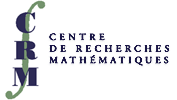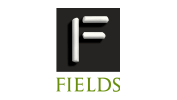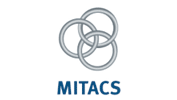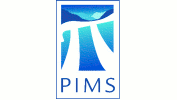 |
|
||||
Org: Dragana Martinovic (Windsor)
[PDF]
- GREGORY BELOSTOTSKI, University of Alberta, Department of Secondary Education, 347 Education South University of Alberta, Edmonton, Alberta T6G 2G5
Researching the Classroom Experience of the Mathematics Student: The role of discourse analysis and phenomenology in mathematics education research [PDF] -
Researching the student experience in the classroom is an important aspect of the study of education in and of mathematics. For example, individual teachers and programs of study frequently call on students to communicate ideas, construct meanings, and participate in a mathematics community of peers (the classroom or research community). With such expectations comes the responsibility to develop a deep level of knowing the nature of the experiences of students learning mathematics in the classroom. Such understanding is required in order to develop practice in support of student inquiry and communication in the classroom, and to nurture participation in the mathematics learning community.
In this presentation, I describe my approach to researching one aspect of student experience-the nature of student questions in the mathematics classroom. I will outline some of the theoretical considerations in designing my present study and present how I am using the framework of phenomenology to research the experience of asking questions from three different points of view: the student, the teacher, and the researcher. Finally, I will present discourse analysis as a research technique for analysis of student questions in order to examine the relationship between the student, the discipline of mathematics, and the learning community.
This research is part of my doctoral dissertation in Secondary Mathematics Education at the University of Alberta.
- D. JARVIS, Z. KARADAG, D. MARTINOVIC & O. RADU - GEOGEBRA GROUP, University of Windsor
GeoGebra: Dynamic Mathematics for Teaching and Research [PDF] -
This presentation will offer background information on GeoGebra, highlighting it as a dynamic learning environment that brings visual, algebraic, and numeric (as in the spreadsheet view) representations together.
Mathematics education methods courses offered in the pre-service programs emphasize proficient use of technology for effective mathematics education. The appeal of GeoGebra is that it is open access software, suitable for use in schools as well as at home. In this section of the presentation, experiences from introducing GeoGebra to the Intermediate/Senior pre-service teachers will be described in addition to some research done around GeoGebra.
The audience will be introduced to the GeoGebra International Institute and GeoGebra Institute of Canada.
The talk is part of a one-hour joint presentation on GeoGebra given by D. Martinovic, Z. Karadag, D. Jarvis and O. Radu.
- DANIEL H. JARVIS - GEOGEBRA GROUP, Nipissing University, 100 College Dr., North Bay, ON
Computer Algebra Systems (CAS) in Post-Secondary Mathematics Instruction: Preliminary Results from a Research Study Investigating CAS Usage and Sustainability [PDF] -
This talk will highlight the preliminary research findings of an international research study focusing on the use of Computer Algebra Systems (CAS) in post-secondary mathematics instruction. The study comprised a large literature review, a nation-wide electronic survey of Canadian mathematics professors, and case studies of two universities (one in Canada; one in the UK) in which a mathematics department has sustained technology-related instructional change and support over time.
- ANN KAJANDER, Lakehead University, 955 Oliver Road, Thunder Bay, ON P7B 5E1
Math for teaching: Who needs it? [PDF] -
Far too many elementary teachers enter teacher preparation programs with a fear and even loathing of mathematics. Many describe surviving school mathematics by memorization of rote methods, yet express a desire to have their own students learn math with conceptual understanding. This presentation will focus on the first four years of a study of preservice teachers' conceptual understanding of elementary mathematics as needed for teaching. Preservice teachers' knowledge of mathematics, and beliefs about mathematics, were examined in a pre-test/post-test format using the Perceptions of Mathematics survey, as well as during semi-structured interviews. Preservice teachers developed significantly during one-year mathematics methods courses, but conceptual understanding, while much improved, generally was not yet strong. Preservice teachers who opted to take an optional course in specialised mathematics for elementary teachers tended to be weaker initially mathematically, yet stronger than their classmates by the end of the teacher education program. Improvements were found in both general conceptual understanding of elementary mathematics as well as more specialised mathematical aspects such as an understanding of the appropriate use of particular classroom mathematics models.
Examples of particular topics and how they might be understood by teachers will be offered as examples of the emergent field of mathematics for teaching, which is argued to be both challenging and to include much more than "remedial" mathematics. While our program changes have shown promise, it is argued that the increase in time spent on learning specialised mathematics is still not enough for most preservice teachers.
- BRYAN KARNEY, Faculty of Engineering, University of Toronto
Effective Motivation of Engineering Mathematical Education [PDF] -
For the last 15 years I have been exploring the range of mathematics skills the students entering third-year Civil Engineering possess, and what can best be done with this skills in their final undergraduate mathematics course. What is apparent from the data collected is that their retained knowledge from previous mathematics courses has been gradually decreasing over this time, and their sense of alienation from mathematics has been steadily increasing. These two aspects are naturally related. If fact, when probed, it is clear that the third-year students have tended to lose perspective about what mathematics is useful for, what it can contribute to their career, and even what humans invented these procedures for in the first place.
This course explores how to re-energize students through explicit review sessions, through mobilizing a broad range of motivational arguments, and by trying to set goals of mastery of some key reasoning skills. The results have been largely positive, in that the students have re-engaged mathematics with interest and improving skills. But the lack of positive incoming skills and the demands of an over-crowded schedule set real limits in what can be achieved in a single class. It is believed that the lost sense of mathematics need to penetrate earlier, and more broadly, in the engineering curriculum.
The nature of the course, the results of the pretests over time, and the motivational experiences that have been found to be beneficial will be summarized in this presentation. The basic insight is that mathematics is not primarily helpful as a way of looking inward to engineering students, but can be an satisfying way of looking outward and coming to grips with a responsible engagement with the world. The benefit of this approach is that it allows reasonable limits on when to stop the formal analysis and thus to move on to implementation and monitoring.
- DONNA KOTSOPOULOS, Wilfrid Laurier University
Searching for Fuller Rather than Partial Truths: Transdisciplinarity in Mathematics Education Research [PDF] -
In 2006, the National Mathematics Advisory Panel (NMAP) was formed to analyze existing "scientific" research and make recommendations based on the research on ways in which to improve mathematical learning and instruction for American students. The NMAP report (2008) has resulted in significant controversy and critique, most specifically about the exclusive emphasis on experimental research and randomized trials as the "gold standard" in terms of what counts as scientific evidence. The report states that in order to produce meaningful result results that have the potential to inform practice and improve education outcomes, "graduate programs in education and related fields should ensure attention to research design, analysis, and interpretation for teachers and those entering academic and educational leadership positions in order to increase the national capacity to conduct and utilize rigorous research" (p. 64). The NMAP report has resulted in "domain wars" between those that conduct experimental research (e.g., psychologists) and those that do not (e.g., mathematics education researchers). This paper explores the implications of "domain wars" in mathematics education research and argues that transdisciplinary preparation of researchers is necessary.
- R. MASON, J. MCFEETORS & E. SIMMT, University of Manitoba & University of Alberta
200 000 mathematicians in Manitoba: Determining the nature of mathematics through mathematics in practice [PDF] -
What would it mean to our understanding of our discipline, if we considered learners of mathematics to be mathematicians? Of course, the number of mathematicians in Manitoba would be considerably larger. This presentation will discuss two possible repercussions regarding philosophical considerations about the nature of mathematics, illustrated with data from two research studies. Repercussion one: we would have the opportunity to describe mathematics as an ontological process, a dynamic phenomenon positioned as part of the development of every individual. Repercussion two: the study of the nature of mathematics could rely, along with theoretical positioning, on an empirical element, with the mathematics that each teacher and learner does serving as data. Because we can determine the mathematics that student mathematicians experience, mathematics would have an active normative quality as well: what we think mathematics should be, we could aim to enact. One of the two studies, a longitudinal study that listened to students as they completed their four years of high school, will provide exemplars of mathematics as a developmental phenomenon. In the other study, teachers engaged in curriculum design to enable their students to see the learning of mathematics as an inquiry process. The teaching activities they developed can illustrate what it might mean for deliberations about the nature of mathematics to have empirical and normative elements.
- JANELLE McFEETORS & RALPH MASON, Department of Secondary Education, 347 Education South, University of Alberta, Edmonton, AB T6G 2G5
The centrality of learning in mathematics educational research: Attending to the complexities of cognition, epistemology, and identity in mathematics class [PDF] -
Currently in mathematics education research, student learning is too often reduced to achievement scores, a dependent variable for assessing other factors. We believe that progress in mathematics education toward success for all students needs research which attends to the complexities of how individual students see themselves as learners of mathematics and how they engage in the tasks of classroom learning. In this presentation, we will propose a particular focus for educational research in mathematics: research that brings students learning more clearly into view. Such a focus would prioritize coming to understand the processes students could use in learning mathematics and learning to learn mathematics. We will suggest that the goals of mathematics education could be brought within reach of more teachers and students, if research described more extensively the learning processes of successful students and the reasons for misdirected efforts of less-than-successful students. Using data from a five-year longitudinal study of high school students' engagement in mathematics, participants in the presentation will explore the context of daily homework as a site for strategic coaching by mathematics teachers to support the co-emergence of learning to learn and learning mathematics as a important goal of mathematics education.
- NIRMALA NARESH, Miami University, 123 Bachelor Hall, Oxford, OH 45056, USA
Ethnomathematics, Everyday Mathematics and Workplace Mathematics-Implications for teaching and learning mathematics [PDF] -
Sociocultural dimensions of mathematical knowledge have greatly influenced research in the field of mathematics education in the past few decades, resulting in the rise of different areas of research that include ethnomathematics, everyday mathematics, situated cognition, and workplace mathematics. This line of research has pointed out the importance of situations that evoke superior performance in quantitative reasoning in everyday settings. In this talk, I will draw upon ethnomathematical literature to discuss the connections between ethnomathematics, everyday mathematics and workplace mathematics. In particular, I will draw upon research conducted at bus conductors' workplace in Chennai, India and discuss the extent to which different goal-related activities and the dynamics of their workplaces contribute to their use of mental computation.
- PANEL 1
Mathematics is what mathematicians think. It is a COGNITIVE phenomenon - no more, no less [PDF] -
- PANEL 2
The mathematical education of mathematics teachers: Is there such a thing as 'the mathematics of the mathematics teacher'? [PDF] -
- ERICA ROBINSON-STURRIDGE, Northern Caribbean University
The Application of Biostatistical Analysis to Applied Health Scenarios: Realities in Curriculum, Instructional Models and Application to Service Learning [PDF] -
The development of a successful curriculum for the delivery of biostatistical methods and theory to graduate and undergraduate students requires an applied perspective with instructional models utilizing principles of cooperative learning. The impact of stimulating the cognitive while engaging the spatial components of the learning paradigm requires students to be placed in a realistic problem solving scenario. This allows for observation to be practically associated with the intellectual approach to problem solving.
The basis of this research is to develop predictors for quantitative and analytical courses based on curricula design that will accurately forecast the likelihood of success. The process of analysis is based on the standard educational premise that specific curriculum design will dictate outcome. In this setting, the incorporation of the spatial with the cognitive is being tested against the sole engagement of the cognitive. Three groups of undergraduate and postgraduate students were used in this study with one set from each category exposed to the lecture/tutorial approach whereas the other was taught using a combination of spatial and cognitive methods simultaneously. The effects of the tested model has resulted in significant improvements in student performance and their ability to retain and apply established biostatistical principles to the realistic environment encountered through service learning activities. Graduate Performance improved from a mean percentage score of 79.46 ±3.60 to 86.30 ±2.64 and undergraduate performance increased from a mean percentage score of 52.80 ±5.90 to 74.80 ±3.35.
The model demonstrated that the successful delivery of concepts in quantitative disciplines in health can be done through the successful stimulation of the cognitive through spatial stimulation by a quantitative applied approach with the identification of predictors from the curricula of outcome.
- E. SIMMT, R. MASON & J. McFEETORS, University of Manitoba & University of Alberta
Teachers as Curriculum Designers: Finding Authentic Spaces for Mathematical Inquiry in High School [PDF] -
Eight teachers with three university mathematics educators have been exploring through curriculum design projects how to create opportunities for learners to engage in authentic mathematics in the high school classroom. In this presentation we will illustrate the teachers' challenges and successes as curriculum designers. Then we will follow that up with a discussion about the nature of the activities that generate authentic mathematical inquiry and the ways in which these curricular resources can be made useful to other teachers, either as resources for their classrooms or as examples of how a teacher designs curriculum.
- ANGELA SMART, University of Ottawa, Faculty of Education, Lamoureux Hall (LMX), 145 Jean-Jacques-Lussier Private, Ottawa, Ontario K1N 6N5
Exploring one student's experience of learning calculus through a reflection interview [PDF] -
In this presentation I explore how both past and present experiences in mathematics can affect one student's embodied and proceptual understanding of calculus, based on the framework of Tall's theory of Three Worlds of Mathematics. The student's understanding was investigated through the use of calculus task questions designed to show embodied or proceptual understanding as well as a reflection interview geared towards seeking an understanding of the student's experiences in mathematics classes. The results of the study show that for this particular case study, a proceptual understanding dominated the embodied understanding, which could be linked to the student's experiences inside the mathematics classroom. As well, the data indicated a number of socio-mathematical norms which likewise could be linked to the student's in-class experiences.
- REKA SZASZ, University of Toronto
Teaching-specific mathematics knowledge lying on the boundary of mathematics and education: dilemmas arising from a Mathematics for Teachers course [PDF] -
It is agreed that the academic and professional components of teacher training need to be connected, and Mathematics for Teachers courses are being offered at a growing number of universities as an attempt to realize that connection. This talk is going to present such a course, emphasizing the dilemmas arising from the fact that it deals with the boundary of the academic and educational discipline.





